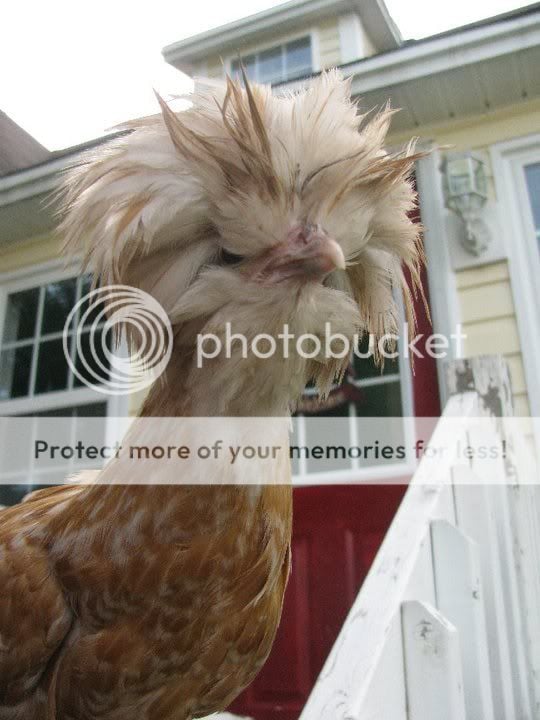Well, if your vet can fix him fairly safely (if he is a he), then I'd go that route if you're willing. If that's not possible, or too risky, then I'd at least give it a go seeing how they all do together once his hormones kick in.
I'm not okay with my girls being torn up and bare backed, so I understand where you're coming from there. But you might get lucky??? Maybe they would all submit to him fairly quickly AND he'd end up a very gentle breeder. We've only ever dealt with two roos. The first one caused chaos and stress among my girls and had to go. The second one we tried, they all like and he's very gentle with them (for a rooster anyway - other than tiny bald spot on my BA's head where he grabs on, no missing feathers. And if they're "not in the mood," then he leaves them alone.
Have your plans in place, but try not to worry too much until you verify that he's a he. And that's gonna' take a crow or vet comfirmation...
I'm not okay with my girls being torn up and bare backed, so I understand where you're coming from there. But you might get lucky??? Maybe they would all submit to him fairly quickly AND he'd end up a very gentle breeder. We've only ever dealt with two roos. The first one caused chaos and stress among my girls and had to go. The second one we tried, they all like and he's very gentle with them (for a rooster anyway - other than tiny bald spot on my BA's head where he grabs on, no missing feathers. And if they're "not in the mood," then he leaves them alone.
Have your plans in place, but try not to worry too much until you verify that he's a he. And that's gonna' take a crow or vet comfirmation...






